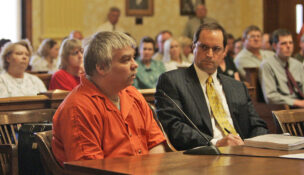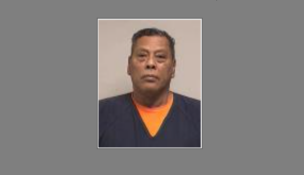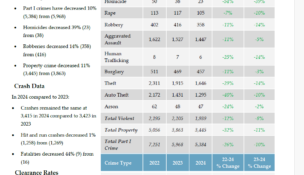Court reverses sentence under three-strikes law
By: dmc-admin//June 1, 2009//
A May 27 opinion by the Wisconsin Supreme Court raises more questions than it answers regarding Wisconsin’s “three-strikes” statute, sec. 939.62(2m).
In an opinion by Justice Ann Walsh Bradley, the court held that, for the statute to apply, the date of conviction for the first prior conviction must precede the date of offense for the second prior.
But the court raised a host of issues for the circuit court to consider on remand, without providing answers to them.
Michael Scott Long was convicted of second-degree sexual assault and false imprisonment in St. Croix County Circuit Court.
The circuit court sentenced Long to life imprisonment without the possibility of parole under the three-strikes statute, finding that two prior convictions in Minnesota counted as “serious felony” convictions.
Sentences Reversed
Long appealed, and the Court of Appeals affirmed in an unpublished opinion. The Supreme Court granted review and affirmed the convictions, but reversed the sentences.
Section 939.62(2m)(b)1 provides that a defendant is a persistent repeater if:
“The actor has been convicted of a serious felony on 2 or more separate occasions at any time preceding the serious felony for which he or she presently is being sentenced … and, of the 2 or more previous convictions, at least one conviction occurred before the date of violation of at least one of the other felonies for which the actor was previously convicted.”
The court thus found the statute has two independent requirements. First, the two previous convictions must precede the current offense.
And second, the conviction date for the first strike must precede the offense date for the second strike.
The state argued that the statute merely requires that at least one of the previous convictions precede the present conviction, but the court found this interpretation contrary to the plain meaning of the statute.
In addition, the analysis of the statute from the Legislative Reference Bureau provides, “of the prior convictions …, at least one of the convictions … must have occurred before the date of at least one of the other serious felony violations.”
In Long’s case, the violation date for his first prior offense was March 23, 2003, and the conviction date was Jan. 7, 2004. For the second, the offense date was March 26, 2003, and the conviction date was Dec. 18, 2003. Because the conviction date of the first offense did not precede the violation date of the second, the court held that the statutory requirements were not met.
Questions Remain
Before remanding for resentencing, though, the court raised several possible issues, but without making any determinations about them.
First, the court addressed whether the state could amend the complaint on remand to substitute other prior convictions as the bases for the persistent repeater allegation.
While prior case law allows amendment of the complaint after entry of a guilty plea, the court has not addressed whether it can do so after conclusion of a jury trial.
The court wrote, “If … the [s]tate wishes to substitute different previous convictions as the factual basis for the persistent repeater allegation, the circuit court will have to determine whether it is permissible for the [s]tate to amend a criminal complaint after the conclusion of a jury trial. If so, it will have to determine what test is appropriate for such a post-trial amendment.”
Second, the court said that if amendment is permitted, the circuit court will need to determine what documents are necessary to establish the prior convictions.
As a general matter, a defendant’s admission to a conviction is sufficient to constitute proof beyond a reasonable doubt. Here, however, the issue is not the fact of conviction itself, but the exact dates of offense and conviction.
The court warned, “if the [s]tate is permitted to amend its complaint, the circuit court and [s]tate should ensure that the record is complete and that it allows the court to make the necessary determinations beyond a reasonable doubt.”
Third, the court noted the constitutional problems that could arise because Long’s prior convictions occurred in Minnesota, rather than Wisconsin.
Federal convictions and convictions from other states count as strikes only if they are “comparable” to an enumerated Wisconsin offense.
Under Apprendi v. New Jersey, 530 U.S. 466, 489 (2000), every fact (other than the fact of a prior conviction) that increases the penalty beyond the statutory maximum must be submitted to a jury and proven beyond a reasonable doubt.
“When the court is required to compare an out-of-state conviction to the Wisconsin criminal code, the court might be required to assess not only the fact of a prior conviction but also the facts and conduct underlying that conviction,” Bradley wrote. “Whether a judge is permitted to make these assessments could implicate Apprendi.”
Legal News
- Steven Avery prosecutor Ken Kratz admits ‘mistakes were made’
- Colombian national extradited to Milwaukee faces International narcotics-trafficking conspiracy charge
- MPD: Milwaukee homicides down nearly 40 percent compared to last year
- EVERS: Republican lawmakers No-Show at special meeting to release statewide PFAS funding, stabilize healthcare access
- Wisconsin ICAC Task Force conference on Missing and Exploited Children highlights increase in sextortion cases
- More than 300 Wisconsin officers back in law enforcement after being fired or forced out
- Former Trump staffer who said to ‘fan the flame’ after 2020 loss hired to lead Wisconsin GOP
- Gov. Evers appoints David Casey to Serve as DOR Secretary
- Former Marine sentenced for Molotov Cocktail attack against Planned Parenthood Clinic
- ABA names 34th Annual Margaret Brent Women Lawyers of Achievement Awards honorees
- FBI launches criminal investigation into Key Bridge collapse
- Man charged in slaying after woman’s leg found at Milwaukee-area park
WLJ People
- Power 30 Personal Injury Attorneys – Russell Nicolet
- Power 30 Personal Injury Attorneys – Benjamin Nicolet
- Power 30 Personal Injury Attorneys – Dustin T. Woehl
- Power 30 Personal Injury Attorneys – Katherine Metzger
- Power 30 Personal Injury Attorneys – Joseph Ryan
- Power 30 Personal Injury Attorneys – James M. Ryan
- Power 30 Personal Injury Attorneys – Dana Wachs
- Power 30 Personal Injury Attorneys – Mark L. Thomsen
- Power 30 Personal Injury Attorneys – Matthew Lein
- Power 30 Personal Injury Attorneys – Jeffrey A. Pitman
- Power 30 Personal Injury Attorneys – William Pemberton
- Power 30 Personal Injury Attorneys – Howard S. Sicula











